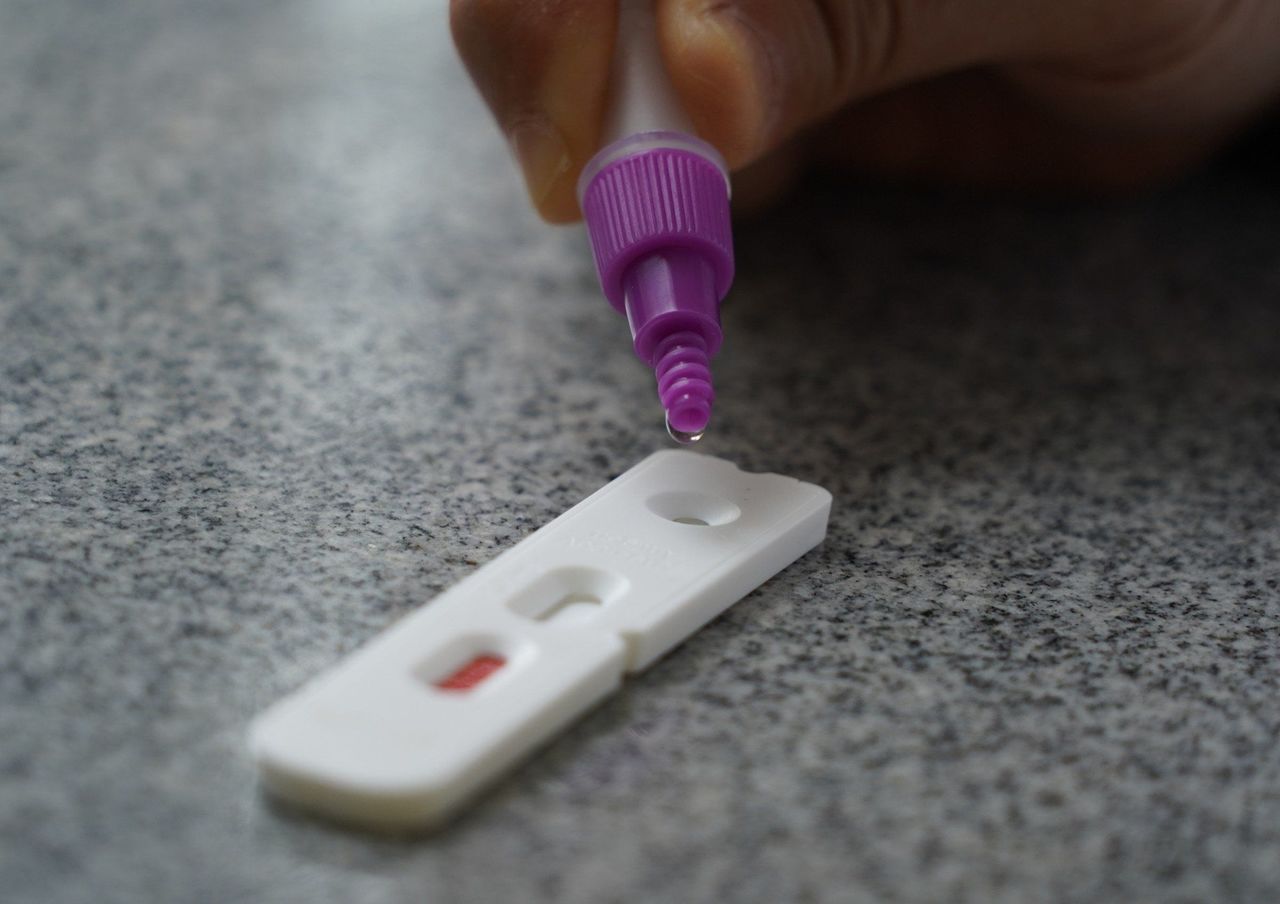Isolation regime for Covid-19 patients to be scrapped from January 30, but mask mandate will stay in force.
Hong Kong on Thursday announced that its isolation regime for Covid-19 patients will be scrapped from January 30, the end of a system once so stringent that it required arrivals and close contacts of coronavirus cases to undergo quarantine periods of up to 21 days.
The Post breaks down the latest policy changes and outlines how it will affect you.
1. What will life be like in Hong Kong after January 30?
People in Hong Kong who test positive for the coronavirus will not be subject to any mandatory isolation from January 30. They will also not need to tell the authorities about their infection status.
The Hong Kong government will only report positive polymerase chain reaction (PCR) test numbers and coronavirus-related deaths.
 Daily rapid antigen tests will still be required in schools as Hong Kong relaxes Covid-19 restrictions.
Daily rapid antigen tests will still be required in schools as Hong Kong relaxes Covid-19 restrictions.
But the mask mandate in the city remained unchanged. A negative PCR test result is still required for travellers between the mainland and Hong Kong.
2. Why has Hong Kong cancelled the isolation rule?
The new policy was based on Hong Kong’s high vaccination and infection rate, as well as the performance of the public healthcare system since the border reopened, the city’s leader John Lee Ka-chiu said.
More than 93 per cent of the city population has had two doses of a Covid-19 vaccine, and 84 per cent have been given a booster shot.
The city was recording 20,000 cases a day earlier this month, but the death rate is 0.19 per cent, compared with 0.77 per cent late last year. Only 10 per cent of Hospital Authority services were affected.
3. How will different sectors in the city be affected?
Asymptomatic patients in most roles will be allowed to return to work. The government will no longer issue isolation orders that give entitlement to paid sick leave. People will need to provide medical certificates for sick time from their own doctors.
If a doctor issues a sick leave certificate for at least four days, the employer will be required to regard it as paid sick leave, with at least 80 per cent of the normal salary, in line with the employment ordinance.
If sick leave certificates are for between one and three days, employers can decide whether it should be paid leave.
If companies do not allow infected employees to come to work, they should treat the time off as paid sick leave.
Children who test positive, including those showing no symptoms, should not go to school until they have a negative result from a rapid test.
Students would still be required to undergo daily rapid testing before coming to school but the requirement would be dropped for teachers and other staff from January 30, the Education Bureau said.
School staff who test positive but were asymptomatic would be able to return to campuses, it added.
Daily RAT tests and PCR tests every two days remain in force for care home employees. The government “strongly advised against” infected employees returning to work. Employers can apply for a government subsidy to hire substitute staff.
4. What should I do if I need medical treatment?
Public clinics designated to treat coronavirus cases will resume general outpatient services from January 30.
Anyone who tests positive for Covid-19 can seek help medical help at any of the more than 70 general outpatient clinics across the city, with prescription medications and additional treatments available if necessary.
Health authorities, however, will suspend telemedicine consultations when the new coronavirus policy takes effect.
General outpatient clinics will leave about 1,000 time slots a day to ensure fast consultations for high-risk patients, including elderly, children, pregnant women and immunocompromised patients.
Private sector doctors and Chinese medical practitioners will also be able to issue medical certificates and related oral drugs.
People can still opt to stay at community isolation centres for up to seven days. Those who do will be able to leave at any time without the need to provide a negative result.
5. What Covid-19 restrictions will be left now?
Two major restrictions will remain – the mask mandate and the PCR test requirement for travel between Hong Kong and mainland China.
The city may see the easing of mask-wearing requirements as early as March, but a decision has yet to be made.
Travellers from both sides of the border with the mainland will be required to take a PCR test within 48 hours of departure, but children aged three or less en route to the city from the mainland will be exempted.
Schoolchildren, as well as staff and visitors in care homes, will still need negative results to get into the premises.
6. Why does the “emergency response level” still exist?
The city’s “emergency response level” system for Covid-19 will remain.
The continuation will legitimise the mask mandate.
The government will also issue vaccines for urgent use against potential variants in the future based on it.















